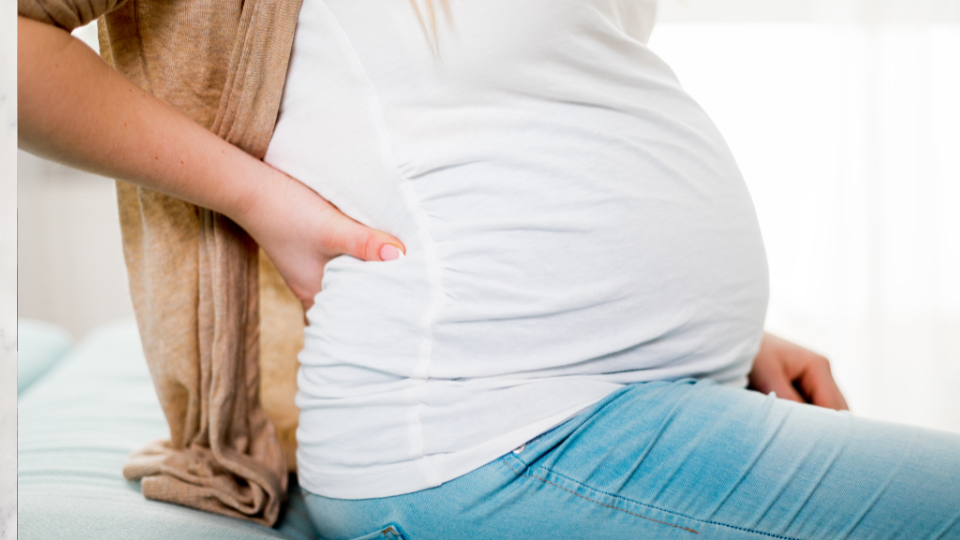Easing Pregnancy Back Pain: Tips for Relief and When to Seek Help
What Is Pregnancy-Related Back Pain?
Back pain is a common complaint during pregnancy, affecting many women as their bodies undergo significant changes. This pain can occur at any stage of pregnancy, but it’s most common in the later months as the baby grows and the body adapts to the added weight and shifting center of gravity.
Pregnancy-related back pain is usually felt in the lower back and can range from mild discomfort to severe pain that interferes with daily activities.
Why Does Back Pain Happen During Pregnancy?
Several factors contribute to back pain during pregnancy:
1. Weight Gain:
- As your baby grows, the added weight puts extra strain on your back muscles and spine, leading to discomfort.
2. Hormonal Changes:
- Pregnancy hormones, particularly relaxin, cause the ligaments in the pelvic area to loosen and the joints to become less stable. This can lead to changes in posture and increased strain on the back.
3. Postural Changes:
- The growing belly shifts your center of gravity forward, causing changes in your posture that can strain the lower back.
4. Muscle Separation:
- As the uterus expands, it can cause the rectus abdominis muscles (the “six-pack” muscles) to separate along the center, weakening core support and contributing to back pain.
5. Stress:
- Emotional stress can cause muscle tension in the back, leading to discomfort or pain.
How to Relieve Back Pain at Home
There are several strategies you can try at home to help relieve pregnancy-related back pain:
1. Practice Good Posture
- Stand Tall: Keep your back straight, shoulders back, and avoid slouching.
- Use Proper Lifting Techniques: When lifting objects, squat down and use your legs, not your back, to lift.
- Sit with Support: Use a chair that supports your lower back, and consider using a small pillow behind your lower back for additional support.
2. Exercise Regularly
- Strengthen Core Muscles: Engage in exercises that strengthen your core and back muscles, such as prenatal yoga or Pilates.
- Stay Active: Regular, gentle activities like walking or swimming can help relieve back pain by improving circulation and flexibility.
3. Use Heat and Cold Therapy
- Apply Heat: Use a heating pad on the affected area to relax tight muscles and reduce pain.
- Cold Packs: Alternating with cold packs can help reduce inflammation and numb sore areas.
4. Wear Supportive Shoes
- Avoid High Heels: Opt for low-heeled, supportive shoes to reduce strain on your back.
- Consider Maternity Support Belts: These belts can help support your belly and reduce the strain on your lower back.
5. Sleep Smart
- Side Sleeping: Sleep on your side with a pillow between your knees to keep your spine aligned.
- Use a Pregnancy Pillow: A full-length body pillow can provide extra support and help you maintain a comfortable sleeping position.
6. Try Prenatal Massage
- Professional Massage: A certified prenatal massage therapist can help alleviate back pain by focusing on areas of tension and promoting relaxation.
When to Consult a Doctor
While back pain is common during pregnancy, there are times when it’s important to seek medical advice:
- Severe Pain: If your back pain is severe, constant, or getting worse, it’s important to consult your healthcare provider.
- Pain with Other Symptoms: If your back pain is accompanied by fever, burning during urination, or vaginal bleeding, you should seek immediate medical attention.
- Numbness or Weakness: Pain that radiates down your legs or is accompanied by numbness, tingling, or weakness in your legs should be evaluated by a healthcare provider.
- Preterm Labor Signs: If your back pain is accompanied by cramping or contractions, it could be a sign of preterm labor, and you should contact your doctor immediately.
Keep In Mind
Back pain during pregnancy can be challenging, but remember, it’s a common experience and there are many ways to find relief. By taking care of your body and following these tips, you can alleviate discomfort and enjoy this special time. Don’t hesitate to seek support from your healthcare provider if needed. You’re doing a great job navigating the changes of pregnancy, and with a little patience and care, you can manage your back pain effectively. Hang in there—better days are ahead!






